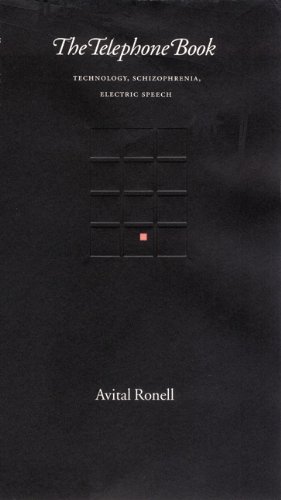Félix Guattari: The Three Ecologies (1989–) [FR, PT, DE, EN]
Filed under book | Tags: · body without organs, capitalism, deterritorialization, ecology, philosophy, psychoanalysis, schizophrenia, semiotics, transversality

Just as rare species are disappearing at an alarming rate, so whole areas of human thought, feeling and sensibility are becoming extinct through the power of an infantalizing mass media and the social exclusion of the old, the young and the unemployed. Extending the definition of ecology to encompass social relations and human subjectivity as well as environmental concerns, Guattari argues that the ecological crises that threaten our planet are the direct result of the expansion of a new form of capitalism and that a new ecosophical approach must be found which respects the differences between all living systems.
A powerful critique of capitalism and a manifesto for a new way of thinking, The Three Ecologies is also an ideal introduction to the work of one of Europe’s most radical thinkers. This edition of The Three Ecologies includes a chronology of Guattari’s life and work, introductions to both his general philosophy and to the work itself and extended notes to the original text.
French edition
Publisher Éditions Galilée, Paris, 1989
ISBN 2718603518
74 pages
English edition
Translation by Ian Pindar and Paul Sutton
Publisher Athlone Press, London, 2000
ISBN 0485004089, 9780485004083
174 pages
Google books (EN)
Les trois écologies (French, 1989, added on 2014-3-21)
As três ecologias (Portuguese, trans. Maria Cristina F. Bittencourt, 1990, updated on 2012-10-18)
Die drei Ökologien (German, trans. Alec A. Schaeret, 1994, added on 2016-4-27)
The Three Ecologies (English, trans. Ian Pindar and Paul Sutton, 2000, updated on 2012-10-18)
Avital Ronell: The Telephone Book: Technology, Schizophrenia, Electric Speech (1989)
Filed under book | Tags: · history of technology, psychoanalysis, schizophrenia, speech, technology, telephone

“The telephone marks the place of an absence. Affiliated with discontinuity, alarm, and silence, it raises fundamental questions about the constitution of self and other, the stability of location, systems of transfer, and the destination of speech. Profoundly changing our concept of long-distance, it is constantly transmitting effects of real and evocative power. To the extent that it always relates us to the absent other, the telephone, and the massive switchboard attending it, plugs into a hermeneutics of mourning. The Telephone Book, itself organized by a “telephonic logic,” fields calls from philosophy, history, literature, and psychoanalysis. It installs a switchboard that hooks up diverse types of knowledge while rerouting and jamming the codes of the disciplines in daring ways. Avital Ronell has done nothing less than consider the impact of the telephone on modern thought. Her highly original, multifaceted inquiry into the nature of communication in a technological age will excite everyone who listens in.
The book begins by calling close attention to the importance of the telephone in Nazi organization and propaganda, with special regard to the philosophy of Martin Heidegger. In the Third Reich the telephone became a weapon, a means of state surveillance, “an open accomplice to lies.” Heidegger, in Being and Time and elsewhere, elaborates on the significance of “the call.” In a tour de force response, Ronell mobilizes the history and terminology of the telephone to explicate his difficult philosophy.
Ronell also speaks of the appearance of the telephone in the literary works of Duras, Joyce, Kafka, Rilke, and Strindberg. She examines its role in psychoanalysis—Freud said that the unconscious is structured like a telephone, and Jung and R. D. Laing saw it as a powerful new body part. She traces its historical development from Bell’s famous first call: “Watson, come here!” Thomas A. Watson, his assistant, who used to communicate with spirits, was eager to get the telephone to talk, and thus to link technology with phantoms and phantasms. In many ways a meditation on the technologically constituted state, The Telephone Book opens a new field, becoming the first political deconstruction of technology, state terrorism, and schizophrenia. And it offers a fresh reading of the American and European addiction to technology in which the telephone emerges as the crucial figure of this age.”
Publisher University of Nebraska Press, 1989
ISBN 0803289383, 9780803289383
466 pages
PDF (8 MB, added on 2015-7-21)
DJVU (9 MB, updated on 2012-8-5)

